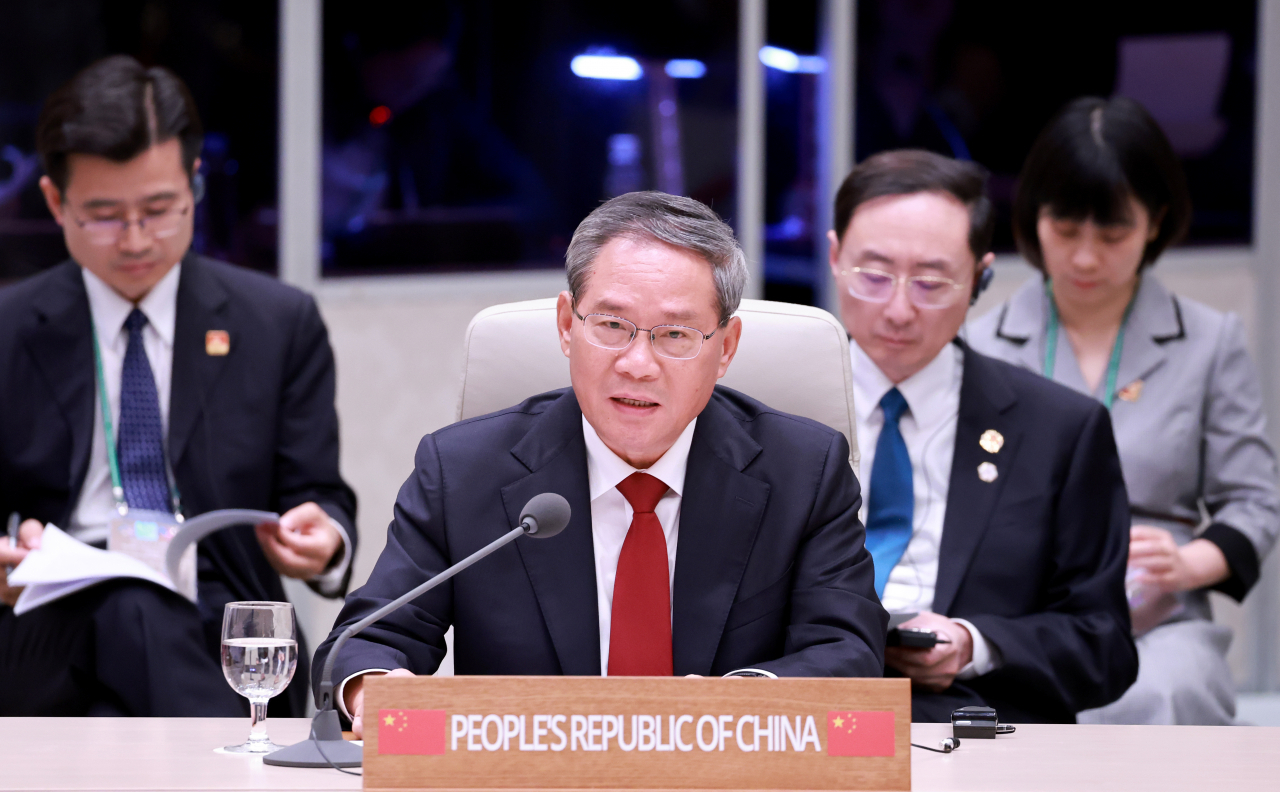 |
Chinese Premier Li Qiang(center) speaks during the ninth trilateral summit at the former presidential office of Cheong Wa Dae in Seoul on Monday. (Yonhap) |
A US State Department spokesperson reiterated the need Tuesday for China to play a "productive" role in countering North Korea's weapons of mass destruction (WMD) programs, after South Korea, China and Japan did not include the complete denuclearization of the Korean Peninsula as a shared goal in their joint summit statement.
Matthew Miller, the spokesperson, made the remarks during a press briefing in response to a question regarding the outcome of the rare trilateral summit that South Korean President Yoon Suk Yeol, Japanese Prime Minister Fumio Kishida and Chinese Premier Li Qiang held in Seoul on Monday.
"I will just speak for the United States and say that we have made clear, including in our direct engagements with the People's Republic of China, that we would welcome them playing any kind of productive role in countering the DPRK's unlawful WMD programs," Miller said. "We will continue to make that clear."
DPRK stands for the North's official name, the Democratic People's Republic of Korea.
After Monday's three-way summit, the leaders issued a joint statement in which they reaffirmed their commitment to maintaining peace and stability on the peninsula and in Northeast Asia, but fell short of stating the complete denuclearization of the peninsula as a common goal.
The threats from the North's military programs gained renewed attention on Monday as Pyongyang launched a space rocket carrying a military reconnaissance satellite under its plan to launch three satellites this year. The North admitted that the launch failed due to the air blast of the rocket during the first-stage flight.
"We condemn the DPRK's May 27 launch, which incorporated technologies that are virtually identical to those used in its unlawful ballistic missile program," he said. "This launch was in violation of multiple U.N. Security Council resolutions."
He added that the US has been in close consultation with South Korea and Japan regarding the latest launch.
"We urge all countries to condemn the DPRK's unlawful WMD and ballistic missile programs and press the DPRK to engage in serious dialogue," he said. (Yonhap)







![[Today’s K-pop] Blackpink’s Jennie, Lisa invited to Coachella as solo acts](http://res.heraldm.com/phpwas/restmb_idxmake.php?idx=644&simg=/content/image/2024/11/21/20241121050099_0.jpg)